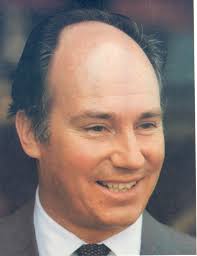Hazir Imams Speech at Birmingham - 1979-09-04
My Lord Mayor, Mr. Mayor, Deputy Lord Mayor, Ladies and Gentlemen:
I would like to thank you very sincerely for your welcome, and particularly the Lord Mayor for his kind words about my wife and myself. I am most grateful for the honour you have paid us in extending this invitation and we have been touched by the warmth of our reception here. This is my first visit to Birminghan and I have been singularly impressed by the design and organization of your fine Exhibition Centre which, I am told, is the best equipped and most readily accessible in Euripe. I hear that you have already succeeded in creaming the best exhibitions from the British market to the consternation of your older competitors South of Watfor and having seen this major complex, I feel sure that you will be equally seccessful in an invasion of continental Europe.
The Islamic of Birmingham, like those who live in other parts of the United Kingdom, are grateful to their neighbour and to their official representatives for the understanding and cooperation they have known since they came to Britian. They are not a particularly large community in this country, numbering some 10,000 in all. They thus comprise only a fraction of the population whose descent is traced from the Indian sub'continent, but they take what I hope is a justifiable pride in being well organized and in looking after each other.
I may not be far wrong in assuming that many people have only a hazy idea of what the Ismaili Muslims represent, and how they relate to other branches of Islam. Like the Protestants and Catholics in Christianity, Islam is divided into two main branches, the Sunni (who are by far the most numerous) and the Shia.
Soon after the Founder of Islam, Prophet Mihammad, died, issues concerning the leadership of the Muslim peoples arose. The Shia Muslims. of whom the Ismailis are a part, believe that the successor to the leadership, of the Imamat, was the Prophet's nephew and son-in-law Ali and that it would continue by heredity through Ali in the Prophet's family, Today the Ismailis are one of the few Shia sects that are led by a hereditary Imam.
The Ismailis are to be found in at least 25 different countries and like most Shias on the world today (with the single exception of Iran) they are a minority of the population everywhere they live. the Islamili community in the United Kingdom was started principally in the 1950's by students who came here to study at British Colleges and Universities and then stayed on to work. It has grown in recent years through a number of historical events in the developing countries. These have included the wars in the Indian-sub-continent and especially the explusion by ex-President Idi Amin of all Asians from Uganda - even those who had lived there for generations and acquired Ugandan citizenship.
The community's ability to help newly arrived families start in business or to train them in new skills assisted by the willing contributions made by your Government and other private agencies has much to do with their rapid assimilation into a different environment. Their number included many doctors, engineers, accountants and other professionals as well as businessmen who have started their own firms. They have set up a number of committees to assist in community development. They run their own Health Advisory Board, a Business Information Centre, a Guarantee plan with Lloyds Bank whereby businessmen are given temporary financial facilities and a Co-operative with a leading a Building Society to enable Ismailis to buy their own homes out of savings programmes. More recently, the Ismaili Imamate and the community in Britain have together created a number of new institutions. The Ismaili Centre in London, whose Foundation Ceremony will take place later this week, is the first to be designed and built as such on the Western world. The Centre will service as the community's religious, social and service headquarters in Britain and will stand on a famous site in the Cromwell Road nearby some of London's most historic buildings.
Our own research institution, the Institute of Ismaili Studies, was established in London in 1977. This institute is the international headquarters for advance studies in Islamics and Ismaili history, literature and sociology, as well as economical research. the Aga Khan Foundation, which was established on 1967 to promote philanthropic activities in the developing world, has recently formed a branch in this country and it is already active in organizing scholarship programmes to Universities and other institutions of higher learning in Britain. One of its major objectives is to maximize scarce human and material resources in developing countries by teaching modern techniques of management not simply for business and commerce, but also for hospitals, schools and low cost housing projects.
So it is that a minority Muslim community forced through circumstances beyond its control to settle for the first time in the Western world is facing that challenge step by step. My community and I have always felt that while minorities ho have rights, they also have a duty to help each other to become assimilated and to contribute to the progress and harmony of the society in which they live.
I cannot predict what the years ahead will bring but I do know that we will stand on our own feet, with hard work and honour, that we will not be a liability on Britain's economy, that we will not seek unfairly to take advantage of Britain's readiness to provide us shelter form the tragedies of modern political turmoil. We seek you in friendship and a willingness to understand and accept us as we are. We thank you, here in Birmingham, for having done both already.
Source: Ismail Mirror
- 6608 reads
 Ismaili.NET - Heritage F.I.E.L.D.
Ismaili.NET - Heritage F.I.E.L.D.